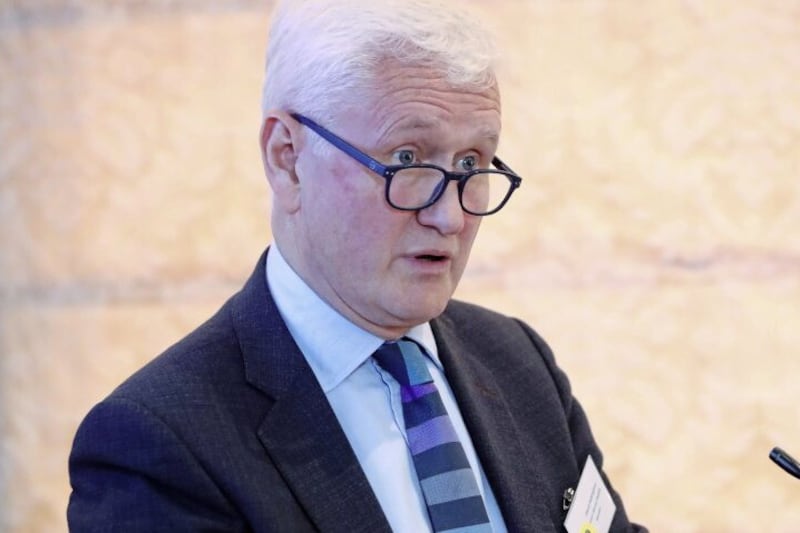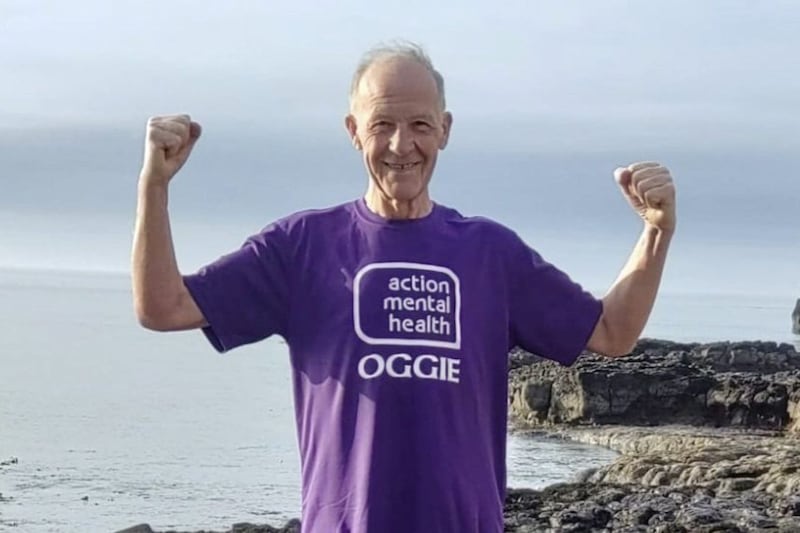"HEALTHY companies make healthy profits," was the message that the Co Down man who's in charge of health services at Virgin Atlantic had for businesses in Belfast last week. And Tim Stevenson was referring specifically to how the mental health of a company's workforce affected its profit margin.
According to the charity Action Mental Health, research shows that mental ill-health costs the Northern Ireland economy nearly £800 million a year, with one worker in six experiencing depression, anxiety or problems relating to stress. With increasing evidence that work-related stress is on the rise, companies are being urged to take steps at encouraging mental wellbeing.
Killyleagh man Dr Stevenson was back home in Northern Ireland for a conference on mental health in the workplace organised by AMH Works, an Action Mental Health training and consultancy service that provides workshops and programmes for businesses in the north to help address employee mental health issues.
Having worked in general practice and occupational health, providing wellness and mental wellbeing initiatives in the workplace is his passion. He firmly believes that a healthy company is stronger and more efficient, as well as a happier company.
"The impact that the workplace has on an individual can be constructive as well as destructive. It is not only the right ethical thing for a company to promote the mental wellbeing of the individual and therefore the workforce but it has also been proven time and again to repay the investment many times over. If you look after your workers you will look after your bank balance.”
This financial gain is achieved through reductions in absenteeism, staff turnover and accidents as well better productivity through loyalty and higher morale.
So how does Virgin implement wellbeing policies and can these translate to small businesses? "In the past health and safety was looking at the risk of hearing, back ache or skin problems and now it's more about the psychological. It's not just about preventing problems or treating problems when they come up, but about health promotion and trying to make healthy workers," Dr Stevenson says.
"The main thing we are trying to do at the minute is a corporate wellbeing assessment which looks at everything to do with the wellbeing of the individual, such as good diet, exercise, home-work balance and the office environment."
Anxiety, problems sleeping, trouble concentrating, muscle tension or headaches, stomach problems and using alcohol or drugs to cope are all signs of stress. Dr Stevenson encourages individuals and managers to recognise these flags and not to be afraid of the stigma associated with mental health but to seek help when needed.
"No matter how big your business is, direct managers can have a real influence over employees' wellbeing. A mindful manager is somebody who gets into the here and now rather than being worried that we aren't doing this or that. They should look out for the individual rather than focus on the output. If someone had a broken arm there wouldn't be a stigma about talking about it, so why should there be if it concerns matters of the mind?"
The devastating effects of mental illness became all too stark earlier this year when the deliberate crashing of a Germanwings jetliner into the French Alps by co-pilot Andreas Lubitz, who had been treated for severe depressive episodes in the past and had been medically excused from working, but hid the fact from his employer.
Dr Stevenson said he would reassure the travelling public that airlines have been very responsive to the tragic incident, in which 150 people were killed. Last October he was part of a committee who convinced the International Civil Aviation Organisation that a pilot's wellbeing should be an integral part of their annual medical.
"In the past it's about making sure your man won't have a heart attack before his next medical, whereas it's more important for me that they are on the ball and are able to concentrate at all stages throughout their flying."
:: For more information on AMH services see amh.org.uk.








